What makes a good general? - Emil Ludwig
Not to be beaten. - George Patton
I was made aware of this information from this documentary “The Life and Legacy of George Patton” by the South African historian Peter Hammond: https://www.bitchute.com/video/kXyGWedi5dUf/ - Peter Hammond sourced from multiple books on Patton including the “Patton Papers” which I eventually purchased. You can basically learn all the important bits of this report from the video, so if you prefer to listen rather than read, then I highly suggest watching the documentary.
Goddammit! Hail Patton! We already had our Hitler who revolutionized our political and spiritual thinking - let us have a Patton who will revolutionize how we make war upon our enemies.
General George S. Patton Jr. the man, the myth, the legend….
Many people in the modern era do not know a damned thing about this man and his life, and so I decided to write this report to rectify what I find to be a terrible issue that can be easily solved. General Patton is an American hero who fought those “evil Nazis” - according to the liberal myth of WW2 this man should be praised and heralded as a great savior of the jews, there should be statues of him in Israel since he played such a vital role in defeating the “evil Nazis” and freeing jews from eternal slavery and certain death… obviously, this is not the case - instead General Patton has been relegated to the dusty annals of history as little more than a simple tank commander who was seen as an anti-Semitic racist country bumpkin, outdated and jaded after long years of warfare.
Here’s a taste of the truth: General Patton was instrumental in defeating the Germans in World War Two, and after realizing he defeated the wrong enemy and began to rectify his mistakes, he was killed by his own military. The documentary by Peter Hammond clearly outlines this with sources.
I will be quoting almost exclusively from “the Patton Papers” - Volume 1 covers Patton’s life from 1885 - 1939, and Volume 2 which covers 1940 - 1945. These two books were made available to us due to the kindly sharing of Patton’s letters and journals by his own daughter Ruth Ellen Patton, if not for her these precious documents may never have seen the light of day. The editor and commentator of the books, a jew named Martin Blumenson, compiled the entries and letters and added pertinent replies to specific letters, and he often comments on military movements to assist in understanding the narrative. To be honest, this commentary is often very helpful in keeping consistency between the letters, entries, and the wars timeline.
With that said, Martin Blumenson also tends to interpose himself into the text to speak down on Patton, or to make the reader think in a way that pleases Blumenson’s own private opinions. This should not surprise us, because Martin Blumenson is Russian-jewish and he has a vested interest in controlling our opinions concerning the great General Patton and his views on race, war, and politics. For example, here is a quote from the introduction of Vol. 2 of “the Patton Papers” the words being from Martin Blumenson himself:
The caustic and unflattering comments about his contemporaries were the product of impulse. He was an impetuous man, and his diary was a luxury that allowed him to unburden himself without self-restraint… How much of what he wrote he really mean or actually believed is continually open to question.
Martin Blumenson undermines this sentiment with this passage, also from the introduction:
The diary allowed him to say exactly what he wished, explicitly yet privately, without compromising the public loyalty to his superiors that was one of his highest virtues.
Imagine writing letters to your wife expressing your true views, or responding to commanding officers with your true views in official letters, or writing in your journal so you can later recall events with accuracy for your future memoirs, and then some jew named Martin comes along and says “oh, this is all open to interpretation, maybe he didn’t mean what he wrote!”… I find Martin’s actions to be deeply deplorable and despicably semitic, specifically because Patton hated Russian jews more than other jews.
Martin is not alone in obfuscating and subverting the character of this great man. Just peruse the Wikipedia articles on Patton, and it becomes clear that General Patton, an American hero, has been posthumously torn apart by liberal academics and historians, extending all the way to outright lying about his moral fabric and outlook on life. This article supposedly proving that he was a narcissist serves to show that liberal Wikipedia is quite willing to lie about a dead man, to tarnish his image and ruin his reputation, by mixing fact with opinion. From the article:
The author—the award-winning screenwriter of the 2006 docudrama Patton’s Secret Mission—considers what he believes to be ample evidence that Patton had a diagnosable, psychological affliction. The general was capable of extraordinary cruelty, he says, and once boasted to his wife that he killed another American soldier with a shovel. Sudmeier also asserts that Patton was a rabid racist with little empathy, in general—he even treated animals with cruel indifference.
This is utterly semitic and I reject this sentiment. Why would a jew attempt to paint an American hero, savior of the jews, and killer of Nazis in this terrible light? I will show you the answer through the story of Patton’s life and his own words - for example, here is Patton’s views on his own ego:
I realize that one is apt to attach too great importance to ones own exploits. If I am guilty, as is probable, of thinking too much of my self please forgive me.
~ Patton ~
Patton wasn’t perfect. There is a long list of faults one could find with this man. However, he serves as a fine example of how to command men, and how to serve with honor even when you find yourself on the wrong side of war.
Young Patton:
Born in 1885, Patton was from an older generation than we are accustomed to dealing with in this modern age. His grandfather was an old Confederate colonel who died in battle during the Civil War, and his father was a wealthy Californian attorney and politician who found new wealth in the far western reaches of the American southwest. Young Patton was intensely interested in history, horseback riding, and the American military from a young age, and he never considered doing anything other than combining his three loves into one glorious career. He was marked for glory from a young age, and his upper class upbringing and military family history helped him achieve his destiny. He joined the Virginia Military Institute, following in the footsteps of his father and grandfather.
In fact, Patton was following the footsteps of countless famous ancestors who helped to sire the illustrious Patton line. From Wikipedia concerning his family lineage and Patton’s views on the subject:
The Patton family was of English, Irish, Scots-Irish, Scottish, French and Welsh ancestry. His great-grandmother came from an aristocratic Welsh family, descended from many Welsh lords of Glamorgan,[7] which had an extensive military background. Patton believed he had formerly lived as a soldier and took pride in mystical ties with his ancestors.[21][22][23] Though not directly descended from George Washington, Patton traced some of his English colonial roots to George Washington's great-grandfather.[24] He was also descended from England's King Edward I through Edward's son Edmund of Woodstock, 1st Earl of Kent.[24] Family belief held the Pattons were descended from sixteen barons who had signed Magna Carta.[24] Patton believed in reincarnation, stating that he had fought in previous battles and wars before his time, additionally, his ancestry was very important to him, forming a central part of his personal identity.[25] The first Patton in North America was Robert Patton, born in Ayr, Scotland. He emigrated to Culpeper, Virginia, from Glasgow, in either 1769 or 1770.[26] George Patton, Jr.'s paternal grandfather was George Smith Patton, who commanded the 22nd Virginia Infantry under Jubal Early in the Civil War and was killed in the Third Battle of Winchester, while his great-uncle Waller T. Patton was killed in Pickett's Charge leading the 7th Virginia Infantry regiment during the Battle of Gettysburg. Patton also descended from Hugh Mercer, who had been killed in the Battle of Princeton during the American Revolutionary War. Patton's father, who graduated from the Virginia Military Institute (VMI), became a lawyer and later the district attorney of Los Angeles County. Patton's maternal grandfather was Benjamin Davis Wilson, a merchant who had been the second Mayor of Los Angeles.[27] His father was a wealthy rancher and lawyer who owned a one-thousand-acre (400 ha) ranch near Pasadena, California.[27][28][29] Patton is also a descendant of French Huguenot Louis DuBois.
Even if half of these claims were false (which they aren’t) then clearly this was a man marked for destiny, and he knew it deep in his very bones, too. The Indo-European blood of nobility and the Anglo-Saxon warrior spirit coursed through his veins, and he was spiritually keyed into this ancestral connection. Eventually, Patton was chosen for enrollment in West Point and he initially did very poorly and had to repeat his first year, primarily due to his bad math skills. However, he persevered and established a place for himself at the academy, going on to serve as a junior officer, and even playing on the football team. After an arm injury stopped him from further football playing, he enrolled into the sword team and rose through the ranks as a skilled duelist, sparking a lifelong pursuit to become a blademaster. Patton even represented America at the 1912 Summer Olympics at Stockholm for the pentathlon, securing fifth place.
Sometime after the Olympics, Patton trained under Adjutant Charles Cléry, a French blade-master, and during the lessons with his mentor, he conceived of designing a modern cavalry sword for the American military. After receiving support for his project, Patton created a new saber combat doctrine matched with his new sword, focusing more on direct thrusting rather than slashing attacks. I own a reproduction training manual written by Patton, and an original 1918 “Patton Saber” - pictured below.
This man was a real American hero - he was descended from famous Europeans, from valiant Americans, he served in a highly acclaimed military college, designed a sword for the American military and established a new fighting tradition for that sword, and even represented America during the Olympics. These things alone would give him a meager spot in the lists of American heroes, but to think that this was only the foundation of a long life of merit! Patton was not a simple warrior - he was a warlord born true, born for glory and destined for great deeds, son of noble lords and loving ladies, son of the American West.
Patton met the love of his live, Beatrice, while training for war and he married her in 1910, and was faithful to her for all his years on this green Earth. She loved horses, military men, and most importantly, she loved Patton’s militaristic aspirations, so their relationship flourished and they had three well-behaved children together. She would remain the great love of his life behind the military, and their devotion to each other can serve as a lesson to us all. A future Patton Perspective will be all about his relationship with his wife; another one will cover his views towards the military, soldiering, and warfare. Marriage and the military - these two elements are key to understanding this great general.
Patton wanted to write a book about his experiences called “War As She Is” which his wife later published after his death under the altered title “War As I Knew It” - I believe this accurately shows Patton’s second love for the military, and that his wife both knew about it, accepted it, and also preferred her status as his true love. Beatrice eventually died after a horse-riding accident. She was not a weakling, not even in her final years.
Pancho Villa Expedition:
In 1916, the infamous Pancho Villa and his bandits were raiding into the American Southwest, and this led to a direct reaction from the American military. It’s honestly crazy to think that nearly one hundred years ago there were armed Mexican bandits crossing the border killing Americans and it nearly brought on war between the two nations, but now we accept the same types of bandits and worse with open arms, even going so far as to pay for the migrants to cross and to pay for their housing when they arrive. It baffles the mind and depresses the spirit, so let us not spend much time thinking about how far America has fallen. Let us look at how George Patton responded to such trials.
Patton wanted to go on the expedition but he was posted elsewhere along the border, so he personally appealed to the expedition leader, the soon-to-be famous General John J. Pershing. He was already wearing a single action Colt revolver in those days and likely seemed to be an eager young officer. General Pershing accepted him as a personal aide and took him on the expedition to stop Pancho Villa’s raids.
The first time Patton saw combat was coincidentally the first motorized attack in American military history. While driving three Dodge touring cars, ten American soldiers led by Patton accidentally ran into a Mexican foraging party of three led by none other than Julio Cardenas, Pancho Villa’s second-in-command and head of his personal bodyguard. Patton and his soldiers killed them, and it was confirmed Patton did hit one of the Mexicans - there are conflicting reports on who shot who, with Patton maintaining he only a horse out from under one of the bandits. Regardless, Patton gained the notoriety, and back home folks imagined Patton with his famous revolver shooting dead the enemy bandito commander. The soldiers draped the bodies of the bandits over their vehicles and drove them back to camp.
Imagine that, the personal aide and right-arm of the American commander killing the second-in-command of the Mexican bandit and riding into camp in a car with three dead bandits strapped over the hood. The fact that it was the first time a motorized vehicle saw military combat in America is just icing on the cake. It really does seem like destiny was twirling her fingers in his life, warping it to match the Weave of Wyrd. Patton was immediately a media hero, and he gained the respect of many higher officers, as well as the admiration of the lower ranks. This experience was just the beginning of his storied career.
World War One:
Not long after his jaunt in Mexico, America joined World War One in 1917, and Patton continued to serve with General Pershing. While he was shuffled around between training troops to overseeing bases, Patton learned he was to command an infantry unit - this did not suit him well, as he was a cavalry officer through-and-through, but the cavalry was a dying breed incapable of doing real damage on the modern battlefield. He felt as though America needed to revolutionize the cavalry and create more armored vehicle regiments to phase out the combat regiments. This idea was well-accepted by the upper brass of the military, but within the ranks of the cavalry, Patton was seen as something akin to a traitor. Always maintaining that the cavalry was a requirement for warfare, and that every military should keep horses for the purposes of baggage trains if need arises, Patton did indeed go beyond the scope of his predecessors.
Tanks offered Patton the answer he was looking for, although he was worried he would never get them in time. To Patton, tanks represented an advancement in shock-troop warfare, akin to the developments of the Greek hoplite and the Carthaginian war elephant. He was eager to prove himself in this new field, and worked tirelessly at training his men with the few tanks at his disposal. Over time, the Tanks Corps grew into a stable unit.
Eventually he was armed and ready to go, and he quickly found himself pitched against Germans in deadly combat. It can safely be said that Patton admirably faced combat and led his men to victory time and time again - or else he would be demoted or dead! His successes on the battlefield led to him thinking deeply about how to best deploy tanks against the enemy, and he eventually found that the infantry and tank need to work together, and not with the tanks supporting the infantry, but with the infantry supporting the tanks. This concept didn’t make it into WW1 tactics, but they eventually saw extensive usage in WW2 with both Germans and Americans.
Patton was wounded in the leg near the end of the war, and do you know what this Chad did? He crawled 40 yards into a shell-ditch, lit a cigarette, and continued to direct his tanks against the enemy. Why did Patton strive to lead even when wounded? He gives us this answer in Vol. 1 of “the Patton Papers”, in a letter to his wife:
I would never have gone forward when I got hit had I not thought of you and my ancestors.
What a Chad.
He was eager to face battle again, and this would be shown in the following war. For now, Patton returned home to be with his loving wife and doting children, as all fathers should do when war is over.
World War Two:
Patton wanted to go to war again, and he spoke often about the next great war as if there would always be one, whether in Asia or Europe, it didn’t matter, but he was certain there would be another battle between great men and that he would be involved, and that he should even lead from the front. Patton battled with an innate youthful gusto (he was even purported to have a squeaky voice) viewing the dire situations of warfare as critical moments in human history where great men were poised against each other based on skill, merit, prestige, and of course, life and death itself. War was a stage where great men battled, and history was written, fate was set, and life was dealt with in divine fashion. War was the underpinning of civilization itself, and Patton was certain that regular men were leading actors upon this great foundational stage, pulled inexorably by fate towards some greater destiny.
I have come to consider myself as a sort of chip floating down a river of destiny. So far I have asked for nothing and received a great deal more than my deserts, and I believe that perhaps the same thing works in other human relations. I believe it is essential to retain your self-confidence and do your duty, and aside from that, let nature take care of itself.
~ Patton ~
In Africa, Patton distinguished himself honorably, time and time again. He desperately wanted to be pitted against Rommel in combat, but the day never came, much to his dismay. Again, combat was the love of battle, the clashing of great men, the attainment of glory through the victory that decided history forever.
Patton slowly became something of an international media star, largely in part due to his gruff demeanor, go-get-em attitude, and his straightforward unabashed political statements. Not only did he have a flair for speaking to foreign diplomats, but he also had skill in saying the right thing to the press to end up on the headlines. He was also famous for pistol whipping a demoralized soldier in a medical tent strictly because he did not believe in shell-shock - it just so happens the soldier was jewish and later profited from his experience. A reporter even states that he heard Patton say: “Shell shock is an invention of the Jews.”
Foreign diplomats quite liked him in Africa, especially French and Arab ones. However, he hated the Russians, didn’t trust the Arabs and French, and he particularly saw the British as competition. He was famous for having a rivalry with the British commander John Montgomery, who he raced against during the Sicily campaign, intent on beating the Germans and proving who was the best Saxon out of the three.
Concerning the decision to have American troops serving under British command in the final attacks in Tunisia, Patton had this to say:
Shades of J.J. Pershing! We have sold our birthright… I am shocked and distressed.
I really think he viewed himself as the superior Saxon. Check this out: before the invasion of France, the Allies put out false information that Patton would be leading a massive invasion from a different corridor, and this served to trick the Germans in diverting some of their forces. This was due to the fact that the German military command viewed Patton as vital to the Allied war effort, and figured that he would be utilized in every major theater from the outset, like in North Africa. This little ploy was known as the Phantom Army - a fake army that Patton was “leading” - a similar thing would happen later, but for entirely different reasons.
When the war was nearly over and Germany was being conquered, Patton began to change somewhat, and his attitudes against the Germans were mollified while his focus against the communist Russians was enhanced tenfold. The great race was ending, his destiny was finally coming to a close, but he felt that there were still more battles for great men. He was the type of man who knew that men had to act on their destiny, they had to take chances and rise through the hierarchy of life on their own merit and authority. War had been his stage, but things changed once that he saw his enemy for who they truly were: good men, the best of Europe, aligned to a political party that promised them change and died trying to bring it.
While in France, Patton learned much concerning the Russian situation, and before entering Germany he was already calling for war against the Russians. When the war was sweeping across Germany and the great race was ending, Patton doggedly kept his advance going east, deigning to liberate parts of Eastern Germany from the Russian commies. He was ordered to turn around and leave the Russians to their spoils, which brought him to his position as Military Governor of Bavaria.
Patton was ordered by Ike to visit the “concentration camps” and at first the judaic veil was over his eyes, expertly carried along by the blood-lust of his warrior spirit. He told himself that he hated the Nazis and therefore felt justified in defeating them. This is what he told himself:
All Nazis are bad, but all Germans are not Nazis.
As his time in Germany wound on, his views mollified considerably and he began to say things like this:
I have been at Frankfurt for a civil government conference. If what we are doing is “Liberty, then give me death.” I can’t see how Americans can sink so low. It is semitic and I am sure of it.
This is due to the fact that as military governor, Patton was forced to visit many of the camps, not just one pre-prepared visit. He quickly learned the truth, seeing that these were work-camps for jews and partisans, but not extermination camps. He worked closely with the Germans not because he wanted to be their chums, but because it was his task to govern them. As he got to know them, as he cared for their needs such as making Displaced Persons collect firewood for Germans (instead of kicking Germans out of their homes) and these sorts of actions continued until reprimands fell upon him both from the media, and from the American military. He eventually had to kick Germans out of their homes for jews and other communists to occupy, and he often compared the labor concentration camps where millions of Germans languished (both in France and Russia) as little more than slave labor, which he claimed went against his Anglo-Saxon conscience. This was a man who realized his wrongs, but did not know exactly what to do.
He saw that America did not win any war. Communism was still at large. Germany, a great nation, was ruined, and at his hands no less. There was a certain feeling of melancholy and sense of responsibility to the Germans that Patton felt, and it just grew and grew until he was a fully changed man.
Germany is out. The Checks hate everyone. The French are communistic. The British are fools. And we, God knows.
Patton had quite a lot to say about the jews. Suffice to say, he did not like them very much, and found them to be incredibly troublesome and dangerous, a dislike that extended back to his younger days in the First World War. Since there are so many quotes concerning his views on the small hats, I will save those quotes for a future report. Stay tuned!
His long-time friendship with Ike Eisenhower came to a head over the jews - Ike was not too happy with the blossoming philo-Germanicism and the anti-semitism that grew within his once-trusted subaltern. Ike tried to reign Patton in, but Patton saw Eisenhower for what he was: a rat politician. From the text:
Ike is more British than the British and is putty in their hands.
Unfortunately, Patton stuck his neck out too far and did not have the political savvy to fight with cloaks and daggers, which proved to be his undoing. He refused to harm innocent Germans one too many times and subverted orders to punish the Nazis - a refusal that led to his back-door demotion, a refusal he himself refused to accept and planned on turning to his advantage back home in the political sphere. He was relegated to a paper army, a non-existent desk job meant as a warning to shut up and get in line - this was a warning Patton took loud and clear, meaning that he took it as a clear sign of war. Of course, Patton did not stop his activities - he began to send letters back home speaking of the political battlefield, and running for office when the whole shameful debacle was over.
As Peter Hammond said in his documentary: “Patton saw his war as changing.” - Patton was specifically interested in running for office and turning the tide of communism in the West, he made this specifically clear to his wife and to close confidants.
Sadly, Patton was targeted for removal by the semitic powers-that-should-not-be. Historian Peter Hammond explains it better than I could, quoting from various different books concerning the subject, but it would appear that the OSS was ordered to work alongside rogue elements of the US military to kill Patton. This order likely came from pro-semitic forces within these organizations, but that is just learned speculation.
The official story is that there was a car crash involving a drunk soldier (who never stood trial!) and General Patton was the only occupant who was seriously injured, and that after a couple of weeks of slow and successful recuperation, Patton mysteriously and suddenly died from his wounds. The real story is that a disorderly and rogue American soldier was hired and commanded by rogue American and British intelligence forces, and he was ordered to crash into Patton’s car. While this happened, a British officer fired a special rifle and paralyzed the General in the spine - which explains why he was the only occupant seriously hurt in the crash. When the agents saw they didn’t kill the old cowboy right away, they waited until he was alone in the hospital and they killed him there with drugs while he was defenseless.
Patton was prescient, and he knew that he was about to die weeks and days before the crash ever happened, saying this to his daughters the last time they saw each other in France that it would likely be their last time together. His ability to sense this coming doom is odd, but it even plays out on his deathbed. While recovering in the hospital, he was fearful that the doctors would kill him.
Sadly, he was right. Patton met an unfortunate fate, and as historian Peter Hammond explains, he was likely killed by the British and American intelligence agencies in league with the Israeli Zionist movement. This is enough to set Patton firmly in the pantheon of American heroes fighting for European and White freedom - it is clear evidence of his good-natured attitude towards the European household that he was a member of, and he was aware of this fact as shown through his letters. Jews could not let Patton live.
Who knows how history would’ve turned out if General Patton had returned to America to run for President like he wanted? Perhaps everything would be based and glorious, my brethren - we will never know, because jews killed this great hero before his time.
Take a moment of silence for this man. He was a worthy champion of the American branch of the European race, and in his final days he fully understood the score and the war for what it truly was, and instead of feeling all sorry and sad, he decided to take action. We can all learn from Patton.

There’s much more to say concerning Patton, so…
FUTURE REPORTS ON PATTON INCOMING!!!
Hail Patton! Hail victory! Thank you, and good-end. o///





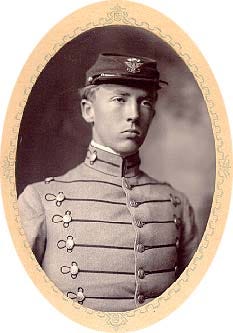
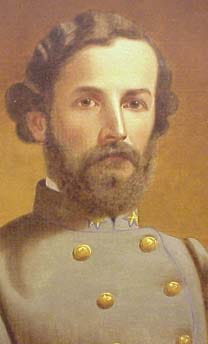



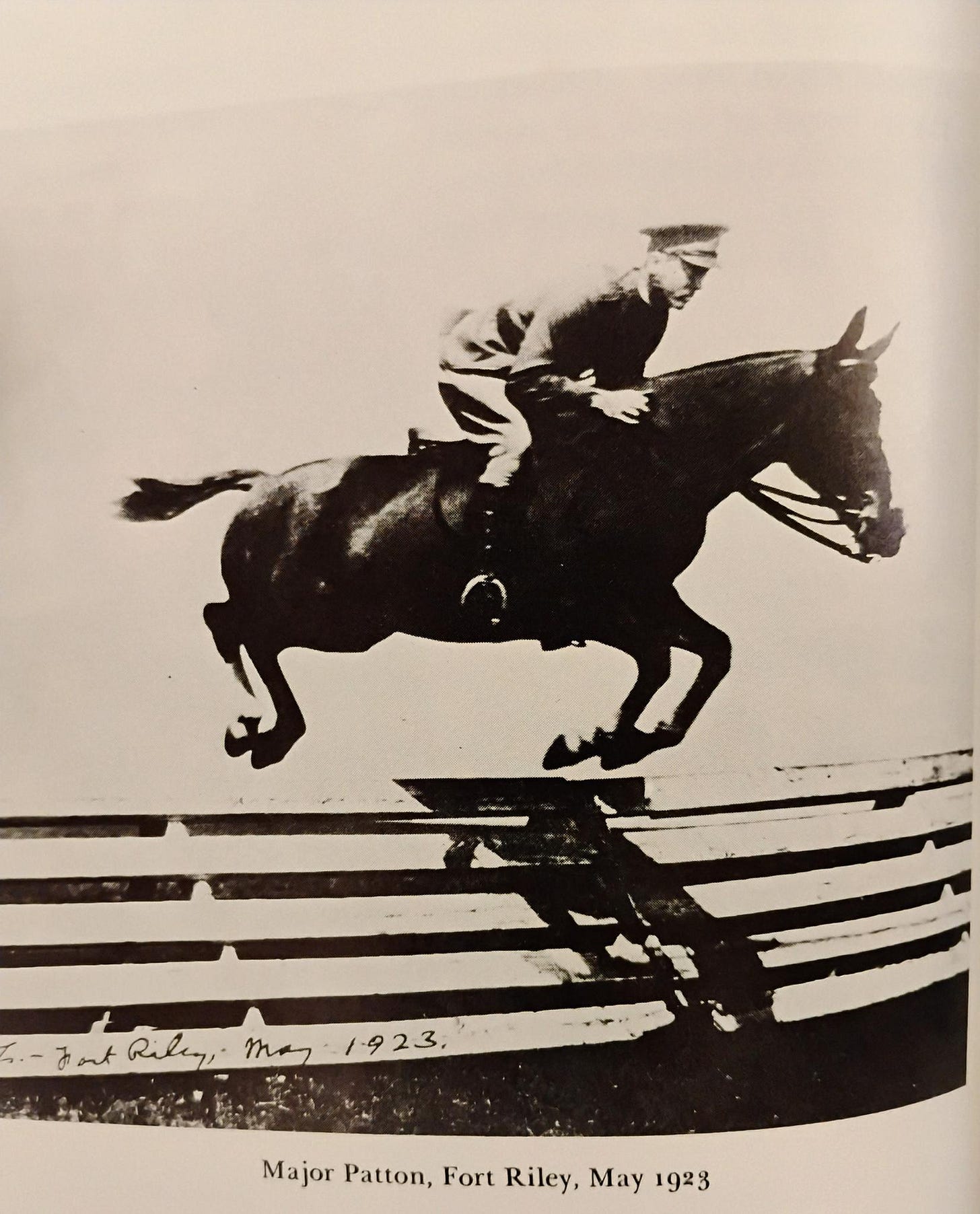
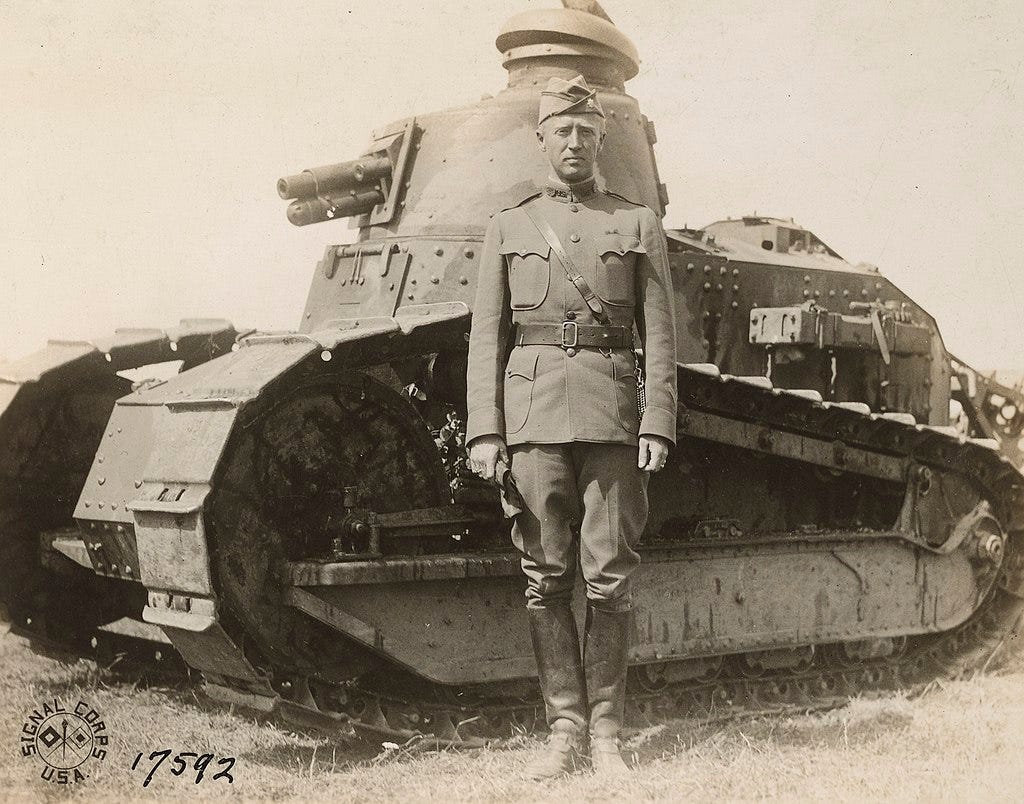
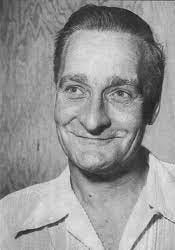
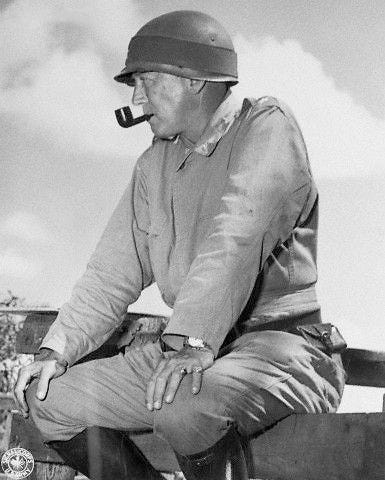
Thanks, Aidan. It was quite a good overview.
Excellent article. Never liked Ike, to much of a slimy politician. MacArthur and Patton were Heroes.
I've had this Alternate History Idea for a while where MacArthur makes a deal with Emperor Hirohito and becomes the American Shogun of a new American-Japanese Shogunate. Synthesizing American industrial/military might and traditional Japanese culture. I think it could've been gloriously based.